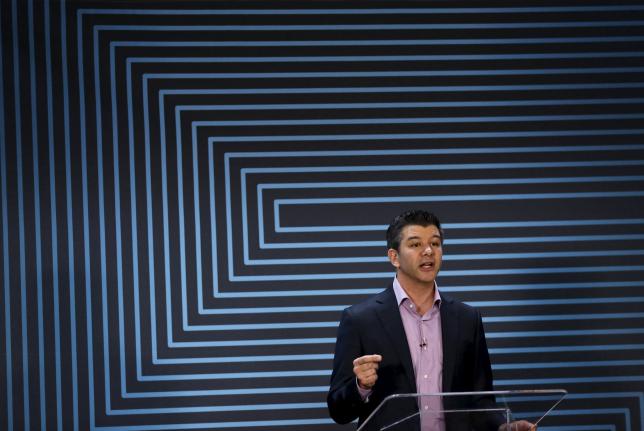California ruling seen unlikely to dent value of Uber, other start-ups

CALIFORNIA – A California ruling requiring Uber to classify a San Francisco-based driver as an employee instead of an independent contractor could potentially change how sharing-economy companies operate, but it is unlikely to dent their value, investors said.
If it holds up on appeal, the California Labor Commissioner's decision, which came to light last week, may have a limited impact on Uber and other companies that rely on networks of on-demand workers.
That's because the benefits of treating workers as contractors rather than employees are more important in a start-up's early days and less so now that Uber and many similar companies have grown, investors say.
Smaller companies need more flexible work forces and contractors solve that problem. Larger companies with more predictable demand for their products or services can benefit from having employees scheduled to work regular shifts.
"If they had to change (to) that, it would be just fine," said an Uber investor who declined to be identified due to sensitivity around the ruling.
The expenses that would stem from classifying drivers as employees, including paying workers’ compensation, Social Security and other costs, could be offset to a large extent by the lower wages Uber could pay to drivers compared with contractors, the investor argued.
"This problem can be routed around," said James McQuivey, an analyst at Forrester Research who has studied the sharing economy for several years and does not foresee any immediate hit to Uber's valuation as a result of the ruling.
Uber is currently valued at more than $40 billion, making it the most richly valued venture-backed company in the United States, according to CB Insights.
One caveat: the Labor Commissioner’s Office awarded the driver involved in the case, Barbara Ann Berwick - who said she drove for Uber for nearly two months - around $4,000 for expenses such as mileage and tolls.
Uber has appealed the ruling to a state court in California.
PACE-SETTER STATE
The company's chief executive, Travis Kalanick, said in a speech earlier this month that in San Francisco alone Uber has 22,000 drivers.
The California ruling applies only to the one driver, but the state often sets a path followed by regulators and courts elsewhere.
Uber and rival Lyft are facing separate lawsuits in federal court in San Francisco that seek class-action status by drivers who say they should be classified as employees.
If a court makes a sweeping ruling that allows workers to retroactively claim expenses, that could result in a large hit. But that would likely hurt valuations of weaker sharing-economy companies more, investors said.
Bigger, market-dominating start-ups with lots of cash on hand are better positioned to handle such setbacks.
Smart investors are aware of the risks, said Jeremy Levine, a venture capitalist at Bessemer Venture Partners, whose portfolio includes several companies with on-demand labor pools.
"You never know how judges are going to rule, or how lawmakers are going to think about this," he said.
But laws and regulations tend to gradually evolve in a direction that benefits consumers, and because Uber and other sharing-economy companies offer better value for their users, the rules likely will adjust to accommodate them, he added.
He and others base their thinking on the history of start-ups that operated in legal gray areas before the law evolved to encompass them, including online-payments company PayPal and online video-service YouTube.
Despite the optimism, words of caution emerged.
Forrester's McQuivey warned that Uber's valuation could suffer if other regulators in important jurisdictions followed the lead of this latest ruling. And Bessemer's Levine said that when it came to the valuations of sharing-economy start-ups and others, "We're nowhere near the fear land now," but added, "As a litany of not- so-positive news happens, we may see that shift." –Reuters







